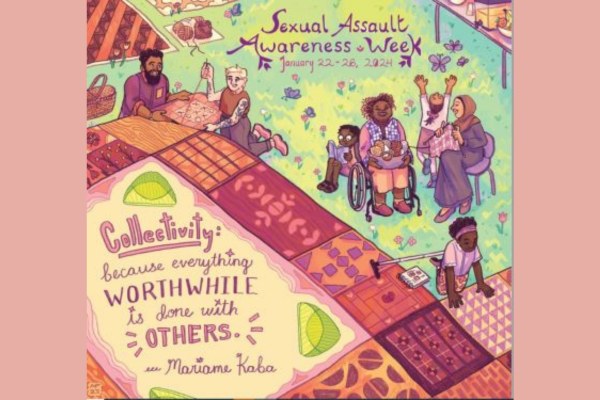As students in a global pandemic, we go through a lot of overwhelming situations. Balancing your workload, taking care of yourself, having a social life, getting enough sleep and staying on top of other everyday tasks can seem almost impossible. Stress can escalate, and it’s important to be aware of when everything is a little too much to handle alone. Let’s cross one of those stressful situations off your list – knowing how to navigate the intake process at Carleton’s Health and Counselling Services. This way, seeking help when you need it is that much easier.
At Carleton Health and Counselling Services (HCS), knowing how the patient intake system works can help you receive the proper mental health support you need. Patient intake is the process through which healthcare organizations triage your needs in order to treat you. There are five steps that make up the intake process at HCS.
Firstly, it’s important to figure out whether your emotions come from stress or distress. Stress responses are normal reactions to environmental and other internal and external factors, which can be common – especially with large changes, like what students are going through right now. Distress occurs when normal stress reactions are severe and occur over a longer period of time. Sometimes it’s difficult to know for yourself where your emotions are coming from and how to express your feelings. To make that easier, the staff at HCS will take you through a risk assessment to help you understand where your feelings lay! Those in distress are considered higher risk and their treatment will become a priority in the intake and scheduling process – although it’s important to remember that everyone’s mental health struggles, big or small, are important.
The intake for an individual who is in distress often starts with Same-Day Counselling, to ensure they are helped promptly. Same-Day Counselling offers many different services to cater to each students’ individual needs, like urgent care and support, problem solving and guidance, or referral assistance to other services, whether that be university support or community resources! For deemed to have lower risk mental health needs, Same-Day Counselling is still available – however space is prioritized for those who need immediate care. You can also make counselling appointments!
In the more distressed cases, your counsellor may refer you directly to a family doctor or one of Carleton’s health professionals. The process that follows your initial intake is all based on your risk assessment, including the timing of follow-up appointments. When a follow-up appointment is scheduled varies by individual needs – it could be the same day or it could be in three weeks! Either way, HCS will match you with the right care for your needs.
Carleton Health and Counselling Services is also able to handle crisis situations, where an individual needs to talk to a certified counsellor immediately. A crisis situation would be considered something like suicidal thoughts, thoughts of harming someone else, recent sexual assault or traumatic event, or hallucinations and delusions.
Depending on the nature of your needs there are a lot of options for referrals. Carleton offers multiple programs and resources including Empower Me Counselling Services which are free for undergraduate students, and is available during by telephone, video-counselling or e-counselling. Another great resource for low-risk mental health cases is TAO Self-Help, which is a program that teaches you coping methods, stress management, mindfulness and relationship skills, so that you have the strategies to help yourself during hard times. If you’re seeking a combination of the two, BounceBack might be the right program for you. In collaboration with the Paul Menton Centre (PMC), BounceBack is a guided life-skills program to help individuals aged 15 and up who are experiencing mild-to-moderate anxiety or depression, or may be feeling low, stressed, worried, irritable or angry. The program teaches coping techniques to help you better manage mental health challenges in the future.
Being able to realize or admit that you need mental health help is one of the biggest challenges there is, but there is absolutely no shame in it. If you or someone you know is in a crisis situation, remember that there are people here to help.
Something as simple as talking to someone qualified about your struggles can make a world of difference! By being vocal about your mental health challenges and putting in effort to help yourself, you are helping to erase the stigma towards mental health and working towards your healthiest self.
Recent Quote the Raven Posts
Read the latest from our student Bloggers











 Ask Me
Ask Me